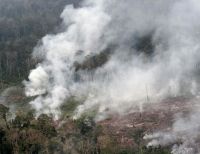
Dr Celine van Golde's new book, Interviewing Vulnerable Suspects.
According to the law in Australia – as in many jurisdictions around the world – fairness to the accused is paramount.
In her newly released book, ‘Interviewing Vulnerable Suspects: Safeguarding the process’, co-author Dr Celine van Golde addresses how to ensure the fair and equal treatment of suspects being interviewed in the criminal justice system.
“People are inherently vulnerable by virtue of their contact with the criminal justice system,” said Dr van Golde, senior lecturer in Forensic Psychology in the University of Sydney’s School of Psychology.
“But there are certain characteristics that exacerbate this existing vulnerability. If someone is inherently more vulnerable than another, is the standard process of police inquisition sufficiently fair for all?”
Focusing on the police practice of investigative interviewing, the book offers uniform police, detectives, and other legal professionals a set of guidelines for identifying specific vulnerabilities, as well as practical guidance for adjusting interviews to accommodate vulnerable groups.
The handbook discusses eight different vulnerabilities and recommends individual adjustments that can be made during the police interview process.
Vulnerabilities identified include:
- Older adult suspects
- Suspects with mental illness
- Culturally and Linguistically Diverse (CaLD) and First Nations suspects
- Intoxicated suspects
- Children as suspects
- Suspects with Intellectual and Learning Impairments (Intellectual Disability, Foetal Alcohol Spectrum Disorder, Autism Spectrum Disorder)
- Suspects with hearing impairment.







